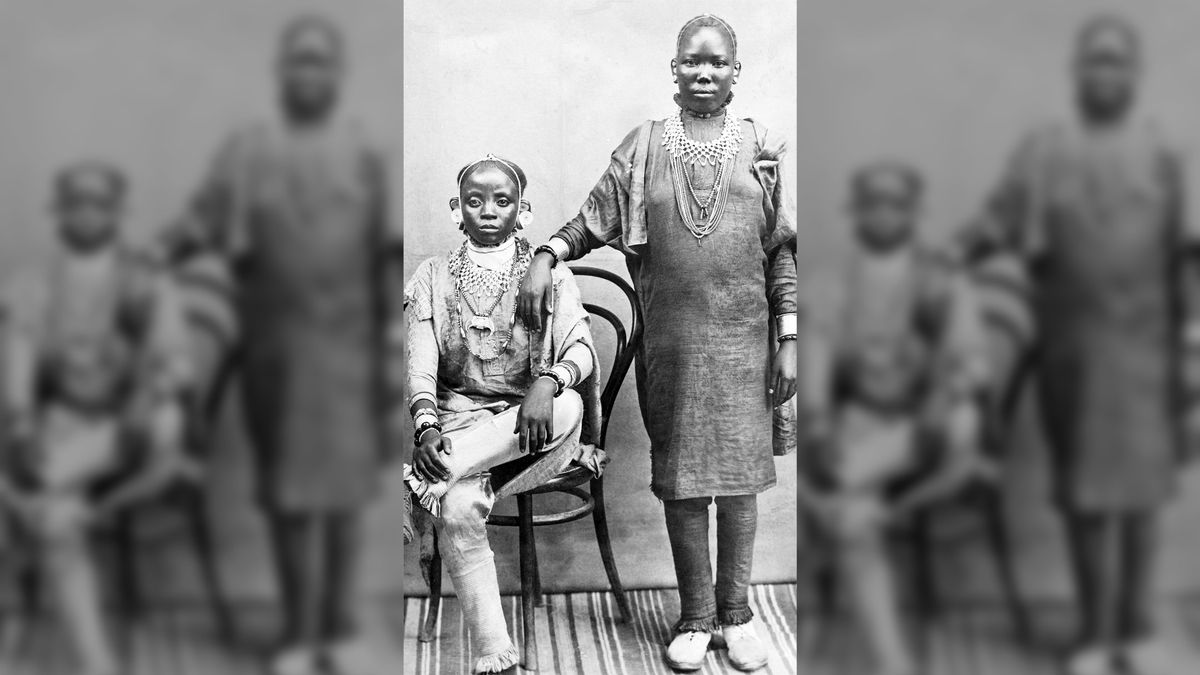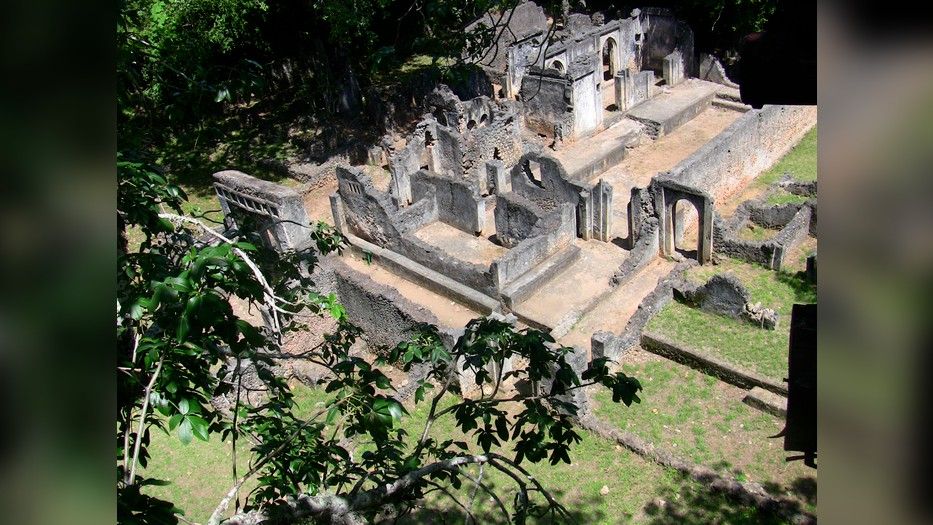Anthropology
Related: About this forumMedieval Swahilis and Persians paired up 1,000 years ago in East Africa, ancient DNA reveals
By Joshua A. Krisch published about 5 hours ago
A new ancient DNA study help confirm, but also "contradict and complicate" the historical narrative that Swahilis paired up with Persians 1,000 years ago in East Africa.

Here we see a black and white image of two Swahili women, one standing and one sitting, in stylish clothing. Traditional Swahili culture had a matriarchal nature when Persian men married into the culture about 1,000 years ago. The Swahili retailed this matriarchal feature during colonial rule and modern times. Here we see two Swahili women in Zanzibar circa 1890. (Image credit: Photo by: Pictures from History/Universal Images Group via Getty Images)
About a millennium ago, long before the age of internet dating, Swahili women in eastern Africa paired up with a new type of suitor: men from Persia, a new study finds.
Researchers made the finding by studying the ancient DNA of 80 aristocrats buried in six medieval and early modern towns along the Swahili coast, they wrote in a new study published March 29 in the journal Nature(opens in new tab). These international hookups occurred just as Islam was spreading to the Swahili region, the researchers noted.
The study supports historical evidence that Swahili aristocrats are descendants of Persians who married Africans centuries ago.
"This picture is almost a perfect match to the Kilwa Chronicle, the oldest narrative told by the Swahili people themselves, and one almost all earlier scholars had dismissed as a kind of fairy tale," co-authors Chapurukha Kusimba(opens in new tab), professor of anthropology at University of South Florida, and David Reich(opens in new tab), professor of genetics and human evolutionary biology at Harvard University, wrote in The Conversation(opens in new tab).
. . .

This tomb site along the Swahili Coast in East Africa is one of the places where scientists uncovered ancient DNA from the Swahili elite. (Image credit: Chapurukha Kusimba, University of South Florida)
More
https://www.livescience.com/medieval-swahilis-and-persians-paired-up-1000-years-ago-in-east-africa-ancient-dna-reveals
Judi Lynn
(162,437 posts)We all like to think we're descended from noble exotic adventurers. If you're from the Swahili Coast, you might be right.
DR. KATIE SPALDING
Freelance Writer
Published
March 31, 2023

Remains of the medieval Great Mosque of Kilwa, in Tanzania on the Swahili coast. Image credit: UNESCO/CC BY-SA 3.0 IGO
“Medieval history” often brings up images of knights in shining armor, rampaging crusaders, and dying horribly from common and preventable causes. Far away from all those peculiarly disgusting Europeans, though, on what we now know as the Swahili Coast of Eastern Africa, there was something pretty amazing going on – as a new study reveals.
“The findings were very eye-opening,” said Jeffrey Fleisher, professor of anthropology at Rice University and a senior author on the study, in a statement. “African traders were fostering different types of alliances with Persian merchants during the early second millennium, probably by marrying off daughters and building their family connections.”
For a century now, various scholars have debated the extent to which Swahili culture has been influenced by outside sources – with evidence pointing in multiple different directions. Adding to this confusion was the influence of more than 500 years of colonization in the area – a “profoundly difficult history” that is still a major problem today, pointed out David Reich, professor of genetics in the Blatavnik Institute at Harvard Medical School and professor of human evolutionary biology at Harvard University.
“The story of Swahili origins has been molded almost entirely by non-Swahili people,” he added in a statement.
So, at first, the accepted wisdom – at least outside of the Swahili Coast itself – was that such an impressive civilization, with its coral-stoned mosques and multicultural towns, must have been imported by some foreign ruling class. In the past few decades, though, the predominant view has shifted to one in which the local culture was mainly homegrown, with only shallower impacts from foreign cultures being imported over the centuries.
More:
https://www.iflscience.com/largest-ever-analysis-of-ancient-african-dna-reveals-origin-myth-was-true-all-along-68246